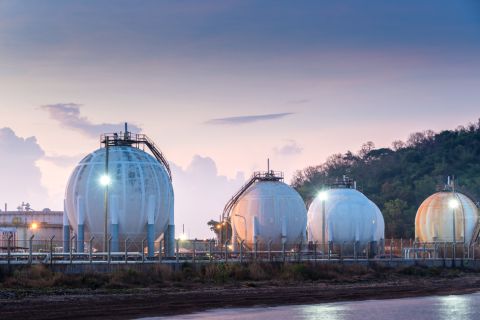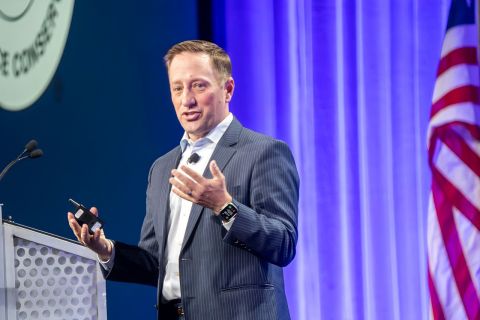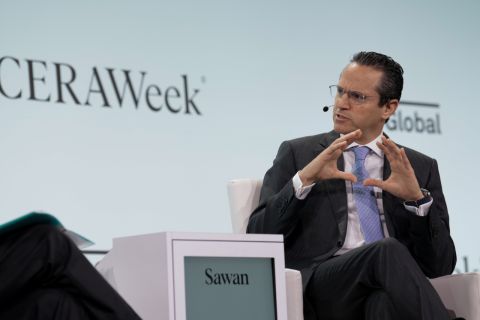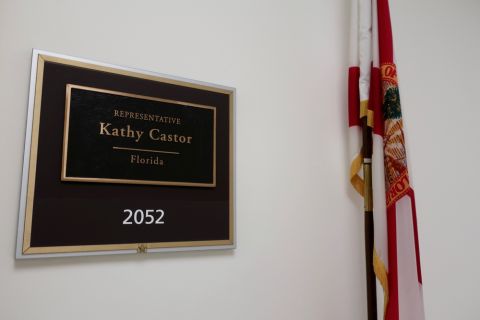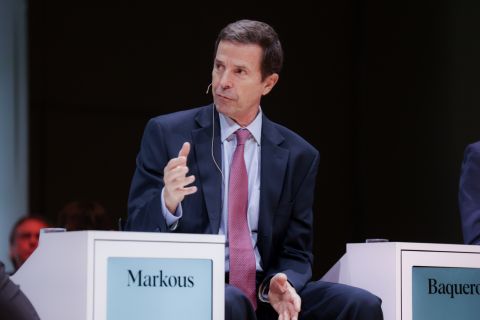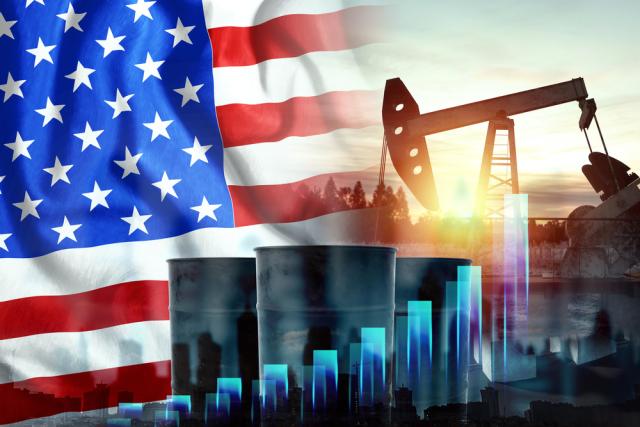
“There's still a giant target out there of resource and we're still drilling hundreds of wells a year," Leach said at the University of Texas’ annual symposium hosted by the Kay Bailey Hutchison Energy Center. (Source: Shutterstock)
Tim Leach, ConocoPhillips’ board member and former Permian Basin explorer, has a prediction: Someone out in the shale world is on the verge of the next oil and gas breakthrough.
Leach is the former chairman and CEO of Concho Resources Inc., a Permian E&P that merged with ConocoPhillips in 2021 in a $9.7 billion deal.
“Somebody out there is drilling to a zone that no one's ever heard about before,” he said Sept. 15 at the University of Texas’ annual symposium hosted by the Kay Bailey Hutchison Energy Center.
“Somebody's using a technique that no one's ever tried before. You really have to keep your ear to the ground. That's where the breakthrough's going to come from.”
Leach, who began his career in oil and gas in the 1980s with Permian-focused Parker & Parsley—the predecessor to Pioneer Natural Resources Co.—is currently an adviser to ConocoPhillips’ CEO Ryan Lance.
Leach built and sold two earlier versions of Concho between 1997 and 2004, after an eight-year stint at Parker & Parsley. He took the most recent Concho public in 2007, accessing the larger pool of capital to fund development of new tight-oil potential in the vast but still uneconomic Williston Basin and, then, in the Permian.
In the past century, new discoveries made by wildcatting and technological innovations around the world were a regular feature in industry news, he said. Today, “there's not that much exploration going on.
“There's not that much new [future-supply] creation.”
In the U.S., oil recovery from tight-rock plays is less than 15% of resource in place. “So there's [still] a tremendous amount of crude oil” to be claimed, he said.
Innovation has already resulted in the 100-year-old Permian Basin getting a second life after producing 30 Bbbl. The advent of horizontal, stimulated wells has pushed the Permian to a point where it will likely produce more than 100 Bbbl of economic output.
“We’ve been working at this for 100 years and we have more than 3.0x the reserves [today] that we produced over the last 100 years,” he said. “… And I think there are still new [economic] zones coming on.”
Leach is optimistic the breakthroughs are coming. “There's still a giant target out there of resource and we're still drilling hundreds of wells a year.
“And that's where the big improvement comes from, the big breakthroughs.”
A new code to crack
The next generation of industry leaders needs more opportunity to get a crack at cracking the code and produce breakthroughs, he added.
“They just need us old guys to get out of the way so they can step up and do some things. And I'm sure there are [future] legends sitting in this room that are probably in their 20s and 30s just looking for a chance.”
Corporate arrogance, he warned, is something that can kill a company. Instead, E&Ps should be promoting curiosity.
“I mean, that's how all this new stuff gets discovered,” he said. “Committees don't come up with the best answers. You need people that are curious, that are constantly asking questions, constantly exploring.”
The business is doing well, though, he added. “I never would've dreamed that you could build an energy company that has a depleting resource where you could return 50% of your cashflow to your shareholders and still grow the thing [at] 4%, 5% a year.
“I mean that's a pretty compelling business model even at mid-cycle commodity prices.”
But the oil and gas industry has “never been very good at telling our story, I don't think. And we have a really compelling story. It's exciting for young people. It's a technology business.”
‘More reality’
In the global decarbonization debate, the world doesn’t want to hear from oil and gas producers, he said. “If I start talking or [another oil and gas executive] starts talking, we’re immediately discounted,” Leach said.
“Our greatest hope is that reality eventually wins. And I think the world is waking up to more reality,” he added.
The energy-short position in Europe and the consequences of EU leaders’ past decisions are part of that reality.
In the U.S., “I think it's time that we really have a serious conversation … about what's best for our country to balance our economy, our need for national security and our need for a clean environment.”
Leaders outside the industry from multiple points of view need to come together, starting from the middle, and say, “There needs to be a great compromise and we can do this. We can balance our economy, our national security and our environment.
“But it's going to have to be a compromise.”
Leach echoed what others at the symposium, including Toby Rice, president and CEO of EQT Corp., said in separate talks.
“We have environmentalists that are blocking pipelines because of their concerns [about] the environment,” Rice said. “They need to be supporting pipelines because of their concerns [about] the environment.”
In his analysis of public opinion of oil and gas, “there's no ‘right’ and ‘left’ in this thing. So we try and stay in the middle, and I think that's where we're going to be best positioned to motivate and influence the other people in America that are in the middle.
“And guess what: That's the majority.”
Recommended Reading
US Expected to Supply 30% of LNG Demand by 2030
2024-02-23 - Shell expects the U.S. to meet around 30% of total global LNG demand by 2030, although reliance on four key basins could create midstream constraints, the energy giant revealed in its “Shell LNG Outlook 2024.”
API Gulf Coast Head Touts Global Emissions Benefits of US LNG
2024-04-01 - The U.S. and Louisiana have the ability to change global emissions through the export of LNG, although new applications have been frozen by the Biden administration.
CERAWeek: LNG to Play Critical Role in Shell's Future, CEO Says
2024-03-19 - Sawan said LNG will continue to play a critical role adding that LNG currently makes up around 13% of gas sales but was expected to grow to around 20% in the coming 15 to 20 years.
Commentary: Fact-checking an LNG Denier
2024-03-10 - Tampa, Florida, U.S. Rep. Kathy Castor blamed domestic natural gas producers for her constituents’ higher electricity bills in 2023. Here’s the truth, according to Hart Energy's Nissa Darbonne.
CERAWeek: Tecpetrol CEO Touts Argentina Conventional, Unconventional Potential
2024-03-28 - Tecpetrol CEO Ricardo Markous touted Argentina’s conventional and unconventional potential saying the country’s oil production would nearly double by 2030 while LNG exports would likely evolve over three phases.


